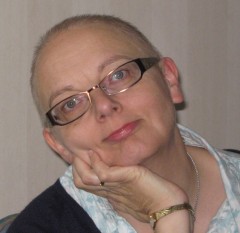Today's Bible Study focussed on Mary of Bethany with the Lukan Mary and Martha story at its core. It's theme was about busyness and the need for times or spaces to be still to reflect, to pray, to be. It was well led by one of the group members and some deep and honest discussion followed.
Someone shared very honestly how all her life she'd deferred things... "I'll do that when I've finished my degree..." "... when the children leave home..." "when I'm retired..." "well, I am retired, so maybe when I'm old..."
A presumption that I can longer have. A few months back I completed one of those silly online surveys that estimates your 'virtual age' and your 'life expectancy' based on life-style and heredity factors. The results gave me a virtual age of 27 and a life expectancy of 97... easy to recall as I am 47. Now the best anyone can offer me is an ~80% chance of reaching 52. I don't feel bound by that, nor do I live with it as a Damaclean sword hovering above me, but it sure shifts your perspectives. Rather than 'life expectancy' people speak of 'five year survival rates.' Which gives pause in a world of busyness and deferment.
It seems to me that there is a shift in thinking from 'life expectancy' to 'living expectantly.' It's probably more Biblical or spiritual or some such too. I have a growing list of things I want to do after my treatment is over, but I am not putting life on hold in the meantime. I am choosing to live expectantly - expecting things to delight me, moments that make me laugh aloud, issues to make me think hard, challenges to be faced with tenacity and fortitude.
Maybe life expectancy data is unhelpful, it promotes dissatisfaction among the 50% of people (or their loved ones) who get less than average and complacency among those who get more. Maybe it encourages us to put off until tomorrow (or more likely tomorrow's tomorrow) that which we could and maybe should do today. Maybe it makes us either too cautious or too careless.
I'm certainly not intending to settle for 52, in so far as it's in my control anyway, but I am intending to live more expectantly for however long it is. Life is not mere 'survival time' for five or eighty-five years (roughly UK female average) it is a gift of God to be cherished.
I reminded our group that Luke's is only one of three M&M stories, that each has her moment of insight (Martha's theological discussion with Jesus at Lazarus' graveside never ceases to amaze me; and it is she who names him as Lord) and there is, I believe mutual acceptance by the time of the Holy Week meal at their home. We must each be true to who we are, and we are each responsible for how we live our lives - as mere survival or as 'life in all its fullness' - the life of expectancy.
